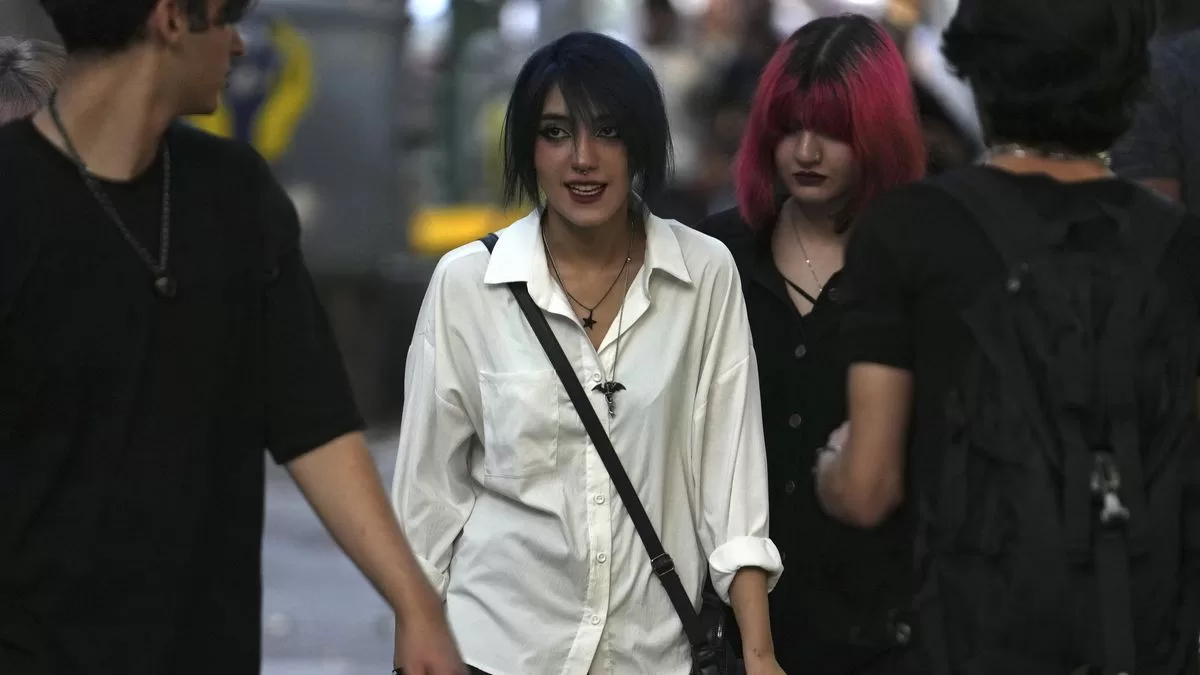“If I face sanctions and punishment, I will wear the veil, as I am in a…prominent position,” said Parvaneh, a doctor who treated protesters injured during protests last year. Like several other women who spoke to The Associated Press, she asked that only her first name be used for fear of retaliation.
Following the death of Amini, who was detained for allegedly wearing her veil loose, police hesitated to strictly enforce Islamic dress regulations, possibly to prevent even more widespread demonstrations and defiance. But in recent weeks, the tone has changed.
“I tell you that this lack of hijab will definitely end,” hardline President Ebrahim Raisi declared on Wednesday.
Authorities have begun sending warning text messages to women who have been seen in cars uncovered; approximately 1 million messages were sent. Some 2,000 cars were confiscated and more than 4,000 women were referred to prosecutors.
Security forces then scoured social media for companies that had posted images of unveiled women at workplaces. One of Digikala’s offices—hugely popular retail websites with more than 40 million monthly active users—was closed. The Taghcheh online bookstore and the Azki insurance market were also briefly closed.
The repressive measures extended beyond the capital Tehran. In the northern city of Lahaijan, local health officials have ordered hospitals and clinics to stop providing services to women who are not veiled. In Damavand, a town about 60 kilometers (40 miles) east of Tehran, prosecutors ordered the arrest of a bank manager and a teller for serving a woman who was not wearing a hijab.
Outdoor seating in cafes has been banned in the northeastern city of Mashhad, and radical groups in Isfahan want to ban men and women from working together in shops.
The entertainment sector is also being watched. The police have threatened to suspend film productions in which women work behind the scenes without wearing the veil.
Judges have sentenced female celebrities who have been found guilty of not wearing the headscarf to work in morgues as a public service, rather than go to prison. They also have to get a mental health certificate from a psychologist before they can go back to their jobs.
“Instead of addressing the legitimate claims of the people, the regime continues to obsess over the hijab and acts as if its very survival depends on whether women dress modestly,” said Haleh Esfandiari, a researcher at the Wilson Center in Washington and a national. Iranian-American, who was detained by Tehran in 2007.
A new bill being considered by Iran’s parliament could make sanctions for women even harsher. It calls for fines of up to 360 million Iranian riyals ($720) and jail sentences for women caught uncovered. The draft legislation also calls for stricter segregation between the sexes in schools, parks, hospitals and other places.
It also contemplates fines for businesses that have female staff and clients who do not wear the hijab with up to three months of their income, while celebrities who do not wear it could be prohibited from leaving the country and carrying out their professional activities.
The bill would also empower intelligence agencies and the Basij — the all-volunteer force of Iran’s Revolutionary Guard, a paramilitary body that has violently suppressed nationwide protests in the past — to confront the women without hijab
Orthodox quarters have long demanded that the Basij enter the fight over the Islamic headscarf. On Friday, some chanted during prayers: “Guard, take to the streets, end hijab removal!”
“This is what Islam commands,” said Rahele Kargarnejad, 29, a staunch supporter of veiling. Her two daughters, ages 9 and 11, wear the chador, she added.
But criticism of the bill is already boiling over.
Ezatola Zarghami, an Orthodox former Guard commander and now minister for Cultural Heritage, warned that harsh sentences such as having to work in morgues “will cause more, and more significant, problems rather than solving the hijab problem.”
Iran’s Supreme Court has struck down a court order that impounded the car of an uncovered woman and revoked her license, setting a precedent.
Even if it passes, prominent lawyer Mahmud Alizadeh Tabatabei said the bill is meaningless as “most women don’t believe in it.”
“They will realize that it is not possible to enforce the law,” Tabatabei declared.
Meanwhile, politicians seen in Iran as reformists have seized on the hijab dispute as they seek changes in Iran’s theocracy from within the system. Former President Mohamad Khatami, one of the country’s leading reformers, has questioned whether enforcing the veil is “wise and productive.”
At a time when parliament is dominated by radicals and elections are approaching in March, the hijab could be a controversial issue before the polls open.
But the anti-veil comments may be insufficient, as the reformers have seen their popularity wane after the 2015 nuclear deal reached under then-President Hassan Rouhani — also considered a moderate — fell apart.
On the streets, many Iranian women remain veiled despite the possible consequences.
“After hearing about the bill I made my decision: I will go to school in my full hijab, but I will encourage my female students to remove it whenever possible,” said Mojgan, a 37-year-old secondary school teacher.
“My students are already ahead of me on that,” she added.
___
Gambrell reported from Dubai, United Arab Emirates.
FOUNTAIN: Associated Press


